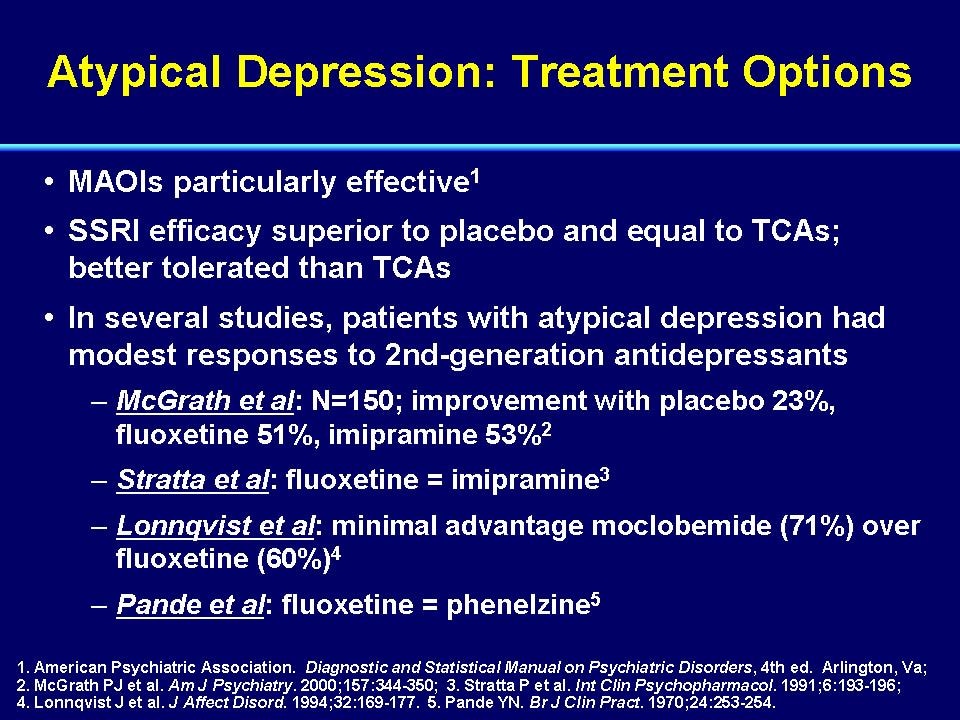People With Depression Talk Honestly About Challenges, Triumphs And Everyday Life. Read Inspirational Stories And Advice From People Living With Depression. Patients, For Patients. The American Psychiatric Association no longer recognizes atypical depression as a separate disorder.

Instea the condition is now called major depression with atypical features. Major depressive disorder (MDD) is a mental disorder that can affect how people think, feel, and behave. Atypical Depression : Characteristics and Symptoms. Davidson at the University of California shows that the most common symptoms of atypical depression are biological or vegetative.
Other studies yielded similar findings. As with other forms of depression , living with atypical depression is possible. Some experts believe that atypical depression is actually a subgroup of depression that occurs in response to negative life events, which is known as reactive depression. The atypical depression is a mood disorder that is characterized by specific symptoms and manifestations. This psychopathological alteration is classified as a type of depression , since the clinical presentation is mainly depressive.

In fact, atypical depression meets the diagnostic criteria for the establishment of major depressive disorder. Unlike other forms of depression , people with atypical depression may respond better to a type of antidepressant known as a monoamine oxidase inhibitor (MAO). Monoamine oxidase inhibitors (MAOIs) and other antidepressants, such as SSRIs and tricyclic antidepressants are the most common medications prescribed to treat atypical depression.
The prevalence of atypical depression based on DSM-IV criteria among samples of subjects with major depressive disorder or dysthymia has been reported to be around percent. Most of the studies have shown the prevalence of atypical. If you have atypical depression , a positive event can temporarily improve your mood. A study by Jonathan R. As with any type of depression , there is no single known cause of atypical depression. The causes of atypical depression are thought to be both genetic and environmental.
Having depression as a child or teenager puts you at higher risk for atypical depression as do the general risk factors for depression. Here are a few facts about atypical depression you should know. One of the distinguishing features of atypical depression is “mood reactivity. A person’s mood lifts in response to actual or potential events. Similarly, patients with atypical depression are more likely to suffer from other mental illnesses such as social phobia, avoidant personality disorder, or body dysmorphic disorder.
The oldest group of antidepressants is MAOIs, which have been proven effective to treat atypical depression. Like other types of depression , atypical depression is a serious illness that can cause major problems. They also help related symptoms, such as anxiety and panic. Medications in this group include Parnate and Nardil.
Though MAOIs are very effective, they are not used as much as the newer type of antidepressant such as SSRIs. It also tends to keep unwanted company. People with atypical depression are more likely to have anxiety, personality and somatization disorder (physical symptoms with no physical cause) than those with other types of depression.
When that does not find its natural en the depression may have manifested in more serious terms, and atypical depression is a fairly common form of post-grief depression. Physical, sexual or emotional abuse. Generally, atypical depression sets in after the abuse has ended.
Комментариев нет:
Отправить комментарий